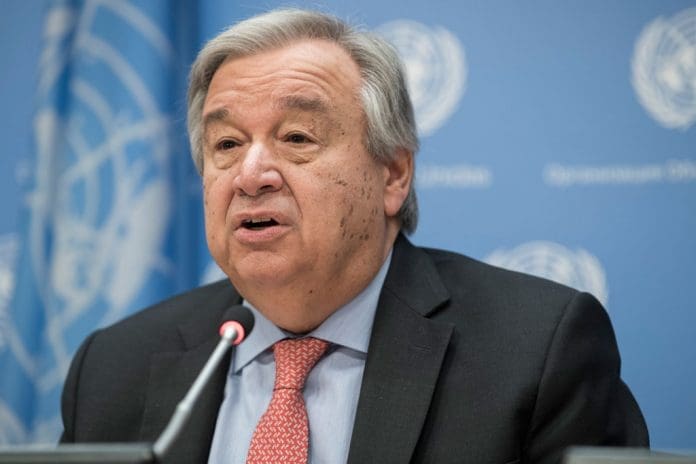
On Tuesday, March 2, 2021, UN Secretary-General, Antonio Guterres, announced that he believes the world will be able to keep global temperatures 1.5°C (2.7°F) above pre-industrial levels under one condition — that existing and planned coal infrastructure is canceled. “Phasing out coal from the electricity sector is the single most important step to get in line with the 1.5° goal,” said Guterres. “This means that global coal use in electricity generation must fall by 80% below 2010 levels by 2030. Once upon a time, coal brought cheap electricity to entire regions and vital jobs to communities. Those days are gone. More than half of the renewable capacity added in 2019 achieved lower power costs than the cheapest new coal plants. Fossil fuels-related air pollution causes one in five of all deaths globally each year. And coal’s economic viability is declining. This has been accelerated by the pandemic.”
Sensitive to the energy needs of developing countries, Guterres stressed the economic improvements of renewables, namely that wind and solar are now cheaper than fossil fuels in many cases. It’s one thing to compare wind and solar to fossil fuels. It is quite another to make a sweeping notion to cancel all existing coal projects and put an end to coal investment. Yet Guterres did just that.
“Today, I am calling on all governments, private companies, and local authorities to take three steps,” said Guterres. “First, cancel all global coal projects in the pipeline and end the deadly addiction to coal. I urge all OECD [Organization for Economic Co-operation and Development]
countries to commit to phasing out coal by 2030, and for non-OECD countries to do so by 2040. Science tells us this is essential to meet the Paris Agreement goals and protect future generations. Main emitters and coal users should announce their phase-out plans well before the Glasgow Conference. G7 members should take the lead and commit to this phase-out at the G7 June Summit, at the latest.”
“Second, end the international financing of coal plants and shift investment to renewable energy projects,” continued Guterres. “I ask leaders of main emitting economies to announce the end of their international financial support to coal at the earliest opportunity this year. I look forward to seeing much more support to the developing countries that are embracing the transition to renewable energy to deliver universal energy access to their citizens. I also ask all multilateral and public banks — as well as investors in commercial banks or pension funds — to shift their investments now in the new economy of renewable energy.”
“Third, jump-start a global effort to finally organize a just transition, going coal plant by coal plant if necessary,” said Guterres. “Most studies estimate that despite inevitable job losses, the transition from coal to renewable will result in the net creation of millions of jobs by 2030. But we know the impact on regional and local levels will be varied. We have a collective and urgent responsibility to address the serious challenges that come with the speed and scale of the transition. The needs of coal communities must be recognized, and concrete solutions must be provided at a very local level. That requires engagement — from governments to power companies, from labor unions to investors, both private and public. I call on all countries to embrace the International Labor Organization’s Guidelines for a just transition and adopt them as minimum standard to ensure progress on decent work for all. The United Nations will fully support this just transition and efforts to ensure that thriving and prosperous renewable energy communities emerge from this transformation.”















